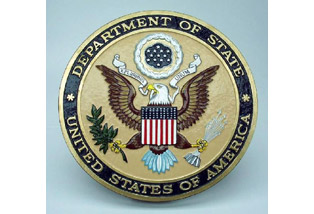EXECUTIVE SUMMARY
The constitution of Georgia provides for an executive branch that reports to the president, a unicameral parliament, and an independent judiciary. President Mikheil Saakashvili was reelected in January 2008 in an election that international observers found consistent with most Organization of Security and Cooperation in Europe (OSCE) democratic election commitments. However, the OSCE also highlighted significant problems, including widespread allegations of intimidation and pressure, flawed vote-counting and tabulation processes, and shortcomings in the complaints and appeals process. These and other problems were also seen in parliamentary elections in May 2008, which OSCE observers concluded were uneven and incomplete in their adherence to international standards. Despite a large number of opposition parties, the executive and parliament were dominated by a single party. Security forces reported to civilian authorities.
The most important human rights problems reported during the year were:
1. Abuse of prisoners and detainees by government officials as well as dangerously substandard prison conditions.
2. Shortfalls in the rule of law such as concerns about ensuring the judiciary’s independent and even-handed application of due process protections.
3. Government interference with unions’ fundamental freedom of association in several areas including interference with strikes, arbitrary dismissals, interference with collection of dues, and harassment and intimidation of labor activists.
Other problems reported during the year included security forces use of excessive force against demonstrators without criminal accountability, in particular during the breakup of opposition protests on May 26; harassment of members of the political opposition; There were reports of improper government use of eminent domain to seize private property. Although Parliament adopted a law providing for greater transparency of media ownership, citizens had limited access to diverse and unfettered media. While independent media were active and expressed a wide variety of views, the three largest television broadcasters reportedly had close ties to the government, and direct or indirect government influence over media outlets remained a concern. Protection of religious minorities improved, including Parliament’s adoption of a law to permit a broad range of religious groups besides the Georgian Orthodox Church to register as legal entities. Problems continued to be reported regarding the resettlement of internally displaced persons (IDPs). Other problems included a lack of transparency in business ownership structures and the conduct of government bids. There were reports of low rates of women in elected positions. There were reportedly high rates of domestic violence. Georgia was primarily a source country but also a transit country for trafficking in persons.
Although the government took some steps to prosecute and punish officials who committed human rights abuses, investigations into such allegations were frequently terminated or delayed, contributing to an atmosphere of impunity.
De facto authorities in the separatist regions of Abkhazia and South Ossetia remained outside the control of the central government. These authorities continued to be supported by several thousand Russian troops and border guards occupying the areas since the 2008 armed conflict between Russia and Georgia. A ceasefire remained in effect in both Abkhazia and South Ossetia, although incidents of violence occurred in both areas. Russian border guards restricted the movement of the local populations. De facto authorities continued to restrict the rights, primarily of ethnic Georgians, to vote, participate in the political process, own property, register businesses and travel. The de facto South Ossetian authorities refused to permit most ethnic Georgians driven out during and after the 2008 conflict to return to South Ossetia. With the exception of the International Committee of the Red Cross (ICRC), international organizations were not allowed regular access to South Ossetia to provide humanitarian assistance.




